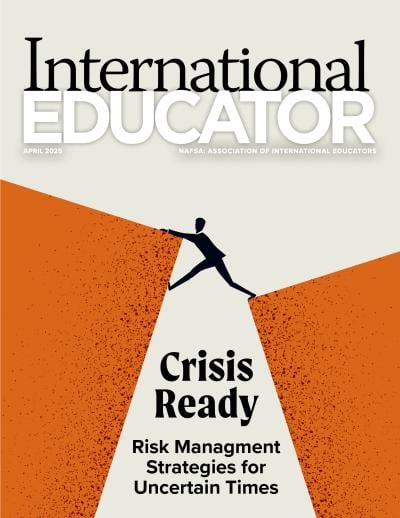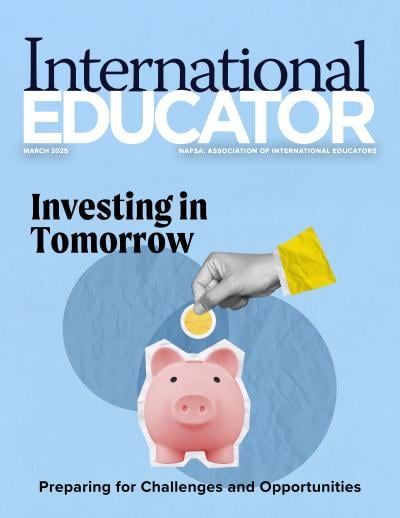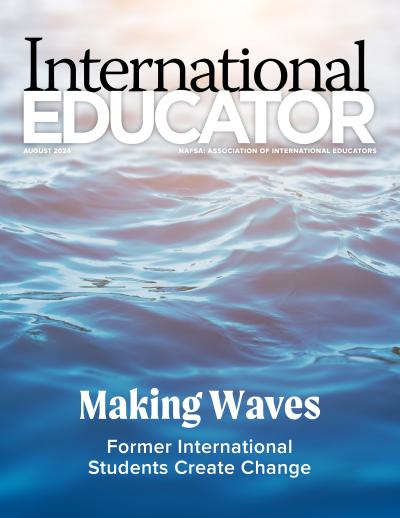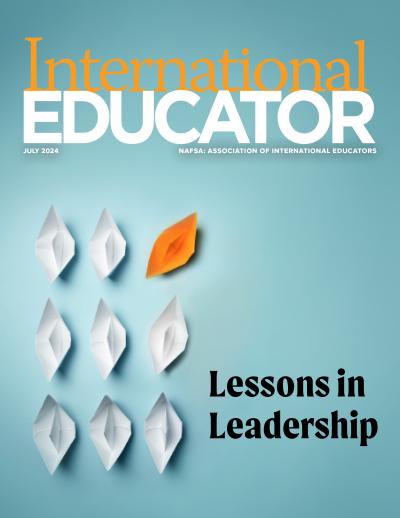Global Connections, Staying Local
Smartphones often get held up to capture the moment at graduation ceremonies, but for a small group of students at the University at Albany-State University of New York (SUNY Albany) earlier this year, graduation was held on smartphones.
Halfway across the world in war-torn Syria, a group of medical students who had completed six weeks of online English training watched on their phones as SUNY Albany staff and volunteers held up printed certificates with each of their names. They were part of the more than 500 displaced Syrian medical students who have taken online courses, largely via smartphone, as part of an initiative developed by SUNY Albany’s Global Institute for Health and Human Rights (GIHHR). Staff and student volunteers in Albany have translated health science coursework and materials into Arabic and conducted intensive English education courses using technology developed by the university.
The institute’s founders, brothers Kamiar and Arash Alaei, understand the power of education in times of crisis. As teenagers, they spent time in prison during the Iran-Iraq war before becoming physicians and human rights activists. Now, they are helping train a new generation of physicians in another war-torn zone; some students help out at hospitals when they’re not taking classes.
The program represents the promise of online education—providing opportunities to learn to those who need them the most. According to a 2016 report by UNESCO, 6 million young people are refugees globally. Just 1 percent of them attend colleges or universities, compared with 34 percent of the global











